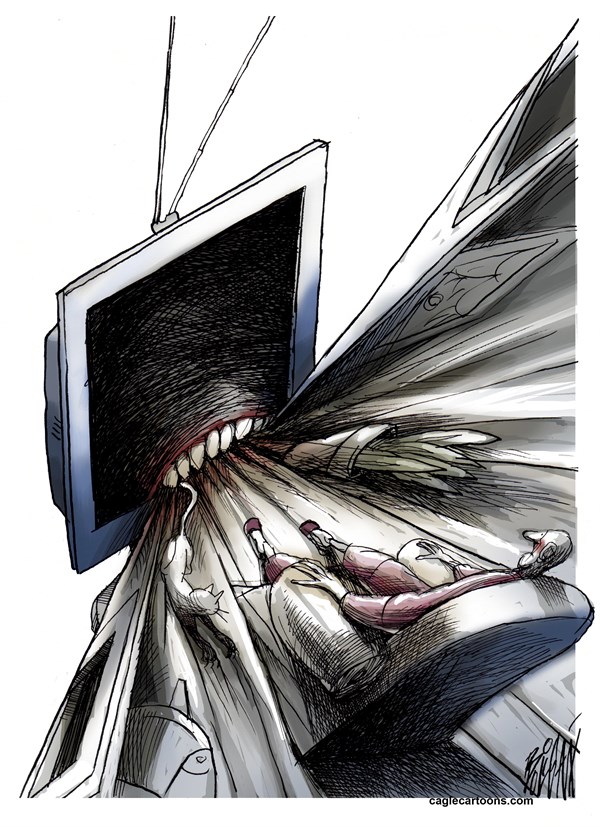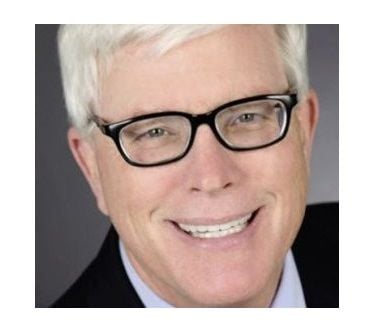
Outside of the United States, with spotty WiFi and only Sky News, the BBC and CNN International on which to rely, the impression of the country is quite different than it is inside the Beltway. News of the attempted assassination of Rep. Steve Scalise, R-La., and a score of other GOP members of Congress and bystanders received scattered airtime, but the horror of the Grenfell Tower fire understandably overshadowed the mayhem in Alexandria, and the shocking British election and its aftermath the week before swept the testimony of Attorney General Jeff Sessions from the broadcasts and the front pages.
A glance or two, or 10, at Twitter or a dip into The Washington Post when the WiFi gods favored us was enough to grab the outline of recent events but not enough to comment on anything with any reliability, except this.
Western Europe, at least, and almost certainly the wider world, simply does not care much about the obsessions of Beltway politics and especially not about the feverish imaginings of "collusion" and "obstruction" by President Donald Trump. There is no evidence whatsoever of the former and only strained speculations of the most attenuated sort about the latter. Thus real news dominates television in France and Britain, and the tragedy in London is as terribly real as it gets.
Against the measuring stick of a global perspective, the drama of D.C. is thin gruel indeed.
A sharp contrast, this awful story of Grenfell Tower, to the chest-thumping of various experts online about the "legal and political" peril in which the president finds himself, or another round of speculation about the state of the president's legislative agenda, or special counsel Robert Mueller's intentions. (Anyone who has ever been close to a special-counsel investigation knows that those who know aren't talking and those who are talking don't know.)
From an ocean away, during a rare break from walking and reading, here are some reminders:
The president can fire Mueller and he can fire Sessions, Secretary of State Rex Tillerson and every single political appointee he wants to fire. He can reset everything tomorrow and do so again the following week. The Constitution established the "unitary executive" for a reason: accountability. It is up to Trump to execute the laws. It is up to Senate Majority Leader Mitch McConnell, R-Ky., House Speaker Paul Ryan and the bodies they lead to decide which proposed laws, if any, to present to Trump for signature or veto.
That's it. The very basics. The rise of the endless, always-restarting news cycle hasn't changed that a bit. Voters can choose in November 2018 and November 2020 to punish or reward Republicans and the president, respectively, and the time between then and now is equivalent to political dog years - almost eternity.
Democrats drafting articles of impeachment and "experts" proclaiming with certainty what we must conclude from the accounts of various unnamed sources are just stunts, circus acts. Likewise are the definitive declarations of this or that equaling "obstruction of justice" when (1) there is deep division on the question of whether an FBI investigation is a "proceeding" that can be "obstructed"; (2) even if it is a "proceeding," there is a threshold question of whether the president can "obstruct" anything when he's talking with, or firing, an FBI director who answers to him; and (3) the political reality is that hyperbole among the Manhattan-Beltway media elites isn't going to induce a GOP House to advance the absurd fantasies of hyperpartisan Democrats.
In a country where there was a real "resistance" that fought back against real totalitarians, the overheated rhetoric of the cable channels and Twitter threads is, simply, absurd. Against real news of real tragedy, the manufactured outrage of the day just doesn't impress.
There is a real world with real news and real suffering. The attempted murder of Scalise and the other victims is real. So is the tragic London fire. But much of the rest of the "news" coming from inside the Beltway barely merits the description "of passing interest."
The gap between the real and the meaningless is growing smaller on air and online and larger in real life.
There is a real history with real stories of tyranny and courage, a real resistance, and a pretend one with pretend valor. The contrast between June 1944 and June 2017 could not be starker from this side of the Atlantic.


 Contact The Editor
Contact The Editor
 Articles By This Author
Articles By This Author